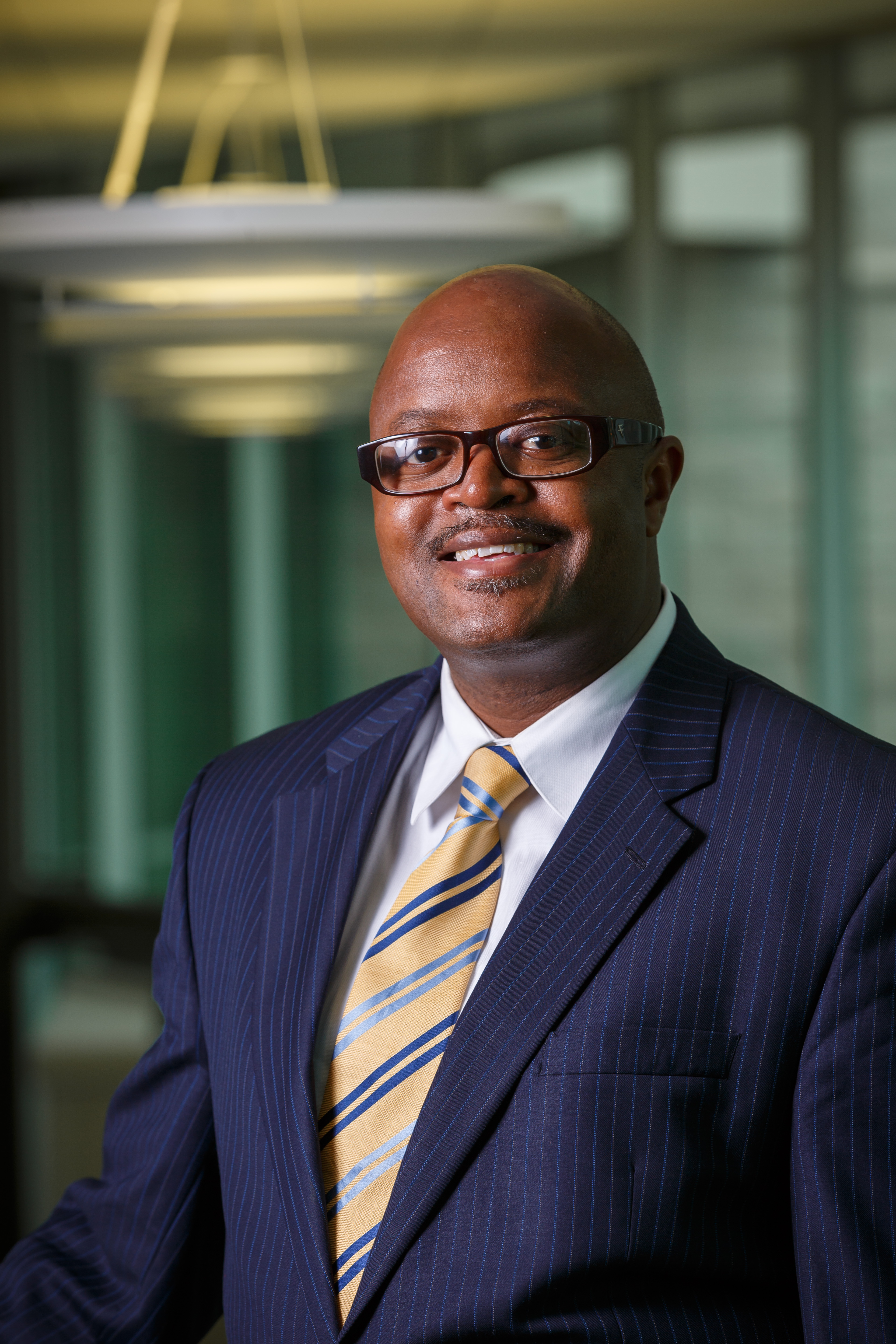
What Marvin Lynn (EDU ’93) likes best about being dean of the School of Education at Indiana University South Bend is his ability to effect broadscale change. “For me, it’s always been about the opportunity to have a positive impact on the profession,” he says. “I felt like as a dean, I could positively shape the direction of teacher education because I had seen and experienced the outcomes, both good and bad, as a student and as a teacher.”
Lynn has come a long way from his roots on Chicago’s South Side. Growing up poor, he struggled to succeed, but found refuge at school. “I was absolutely inspired by some of the excellent teachers I had at Jesse Sherwood Elementary School who really cared about their students and who worked to ensure that their students achieved excellence,” he says. Lynn was 8 years old when he decided he wanted to be a teacher; however, when he first came to DePaul, Lynn enrolled in the School of Music. “Singing is something that I continue to do, but I’ve always known that teaching was my profession,” he says of his decision to transfer to the elementary education program.
Lynn worked part-time during his studies at DePaul and found a second home at the Office of Institutional Diversity and Equity. “They were so supportive of me,” Lynn asserts. “If I felt lonely or wanted advice, they really provided a community for me. That was really important, and I eventually became a counselor there.” Sandra Jackson, professor and director of the Center for Black Diaspora, and former professor Vera Rhimes became mentors to him. A simple paper in Jackson’s class laid the groundwork for Lynn’s future scholarly research. “We looked at the ways in which films were promoting certain race and gender stereotypes,” he explains. “I’d never done any kind of writing like that before, but it just fit so well with my personality and with my interests. I still have that paper.”
In his senior year, Lynn was encouraged by Rhimes to attend graduate school. He received a master’s degree in curriculum and instruction, with a concentration in urban education, from Columbia University in New York. Along the way, Lynn taught elementary school in both Chicago and New York, but began to feel he could have a greater impact elsewhere. “Working in higher education, particularly as a researcher, would give me the ability to impact more people because the writing that I would publish would be available across the world,” he says. Lynn went on to pursue his doctoral degree in social science and education, concentrated in race and ethnic studies, from the University of California, Los Angeles.
|
His greatest accomplishment is his children |
| “I’m proud of the fact that I have three boys who are very academically gifted, as well as athletically inclined. I hope my life is a testament to what’s possible for them.” |
|
He created the South Shore Opera Company of Chicago |
| “It really tied my musical and teaching background, as well as my focus on social justice, together. For me, it was about creating more opportunities for African Americans on the South Side to have access to this great kind of music.” |
| He has spoken in four countries and counting. |
| “I enjoy speaking about race in education and providing some ideas that will help schools move forward. We grapple with similar issues in the United States.” |
As a scholar, Lynn studied African-American teachers and their impact on African-American students in diverse school systems. To this day, he is a sought-after, nationally and internationally renowned expert on race and education who established the Critical Race Studies in Education Association to foster a new generation of critical race scholars. Over the course of his career, Lynn has served in various teaching and administrative roles, including assistant and associate professor at the University of Maryland, associate professor at the University of Illinois at Chicago and associate dean for teacher education at the University of Wisconsin-Eau Claire.
His current position is the culmination of his work to date. “I bring people together to help broaden the understanding about the impact of teaching and how teacher education programs have been and will continue to be instrumental in developing great teachers for schools,” he asserts. “The work is never done. As a person who is concerned about issues of social justice and race, I’m never really satisfied. I’m always thinking about what else needs to be done, but I think I’ve been able to influence some things in a positive direction.”
Like Marvin, are you interested in working in higher education? The MA/MEd in Educational Leadership offers a powerful, discipline-based curriculum with a problem-solving orientation that prepares effective and principled decision-makers.
Explore Educational Leadership